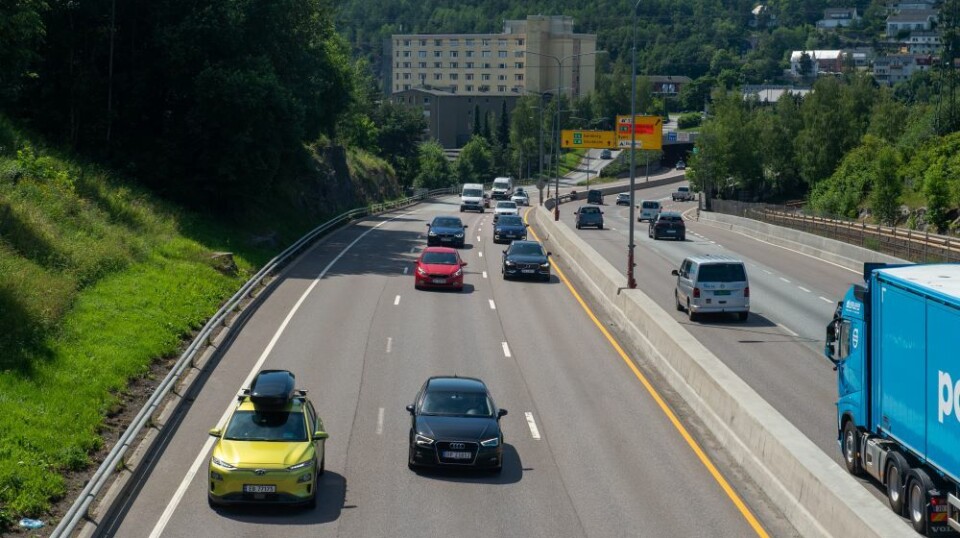THIS CONTENT IS BROUGHT TO YOU BY University of Oslo - read more

Some subsidies are counterproductive
An international group of economists and scientists argue that government subsidies risk locking in unsustainable practices.
'Government subsidies for business practices and processes should be approached with caution, even when they seem to be environmentally friendly,' a group of scientists and economists write in a recent article in the scientific journal Science.
They argue that subsidies can change market dynamics, leading to unintended negative consequences, such as continuing harmful subsidies and reducing the impact of those intended to support environmental sustainability.
When subsidies are used, the authors suggest that they come with clear plans for revision and eventual phase-out.
Conflicting subsidy policies
“We've got this odd juxtaposition of trying to get rid of subsidies in some sectors, and then ramping up subsidies in others,” says Kathleen Segerson, lead author and economics professor at the University of Connecticut.
A question that has interested her is whether this is a good or bad thing.
Subsidies are easier to implement than taxes
“Subsidies are politically easier to implement than taxes,” says Karine Nyborg, professor at the University of Oslo and co-author.
She explains that those who benefit from subsidies strongly support them, while the cost is spread across many, making individual opposition unlikely.
"For the same reason, it's politically difficult to remove subsidies once they're in place,” she says.

Subsidies can encourage environmental goals, such as the U.S. Inflation Reduction Act of 2022, which promotes electric vehicles (EVs) and renewable energy through tax credits and incentives.
Subsidies can also be easier to push through than new laws or taxes and can be used as political tools to gain support from specific groups.
Norway's EV success story
“The electric vehicles in Norway is a good example of how subsidies can be highly effective,” says Nyborg.
Lower taxes for EVs helped the country lead the way in replacing gasoline and diesel vehicles. Nyborg argues that this was necessary to offset the early disadvantages like a lack of charging stations and a limited supply of repair services.
However, not all subsidies that appear to encourage sustainability are so straightforward. The authors warn that some can have negative side effects.
Unintended consequences of EV subsidies
While subsidies for EVs reduce greenhouse gas emissions, they also make EVs cheaper, increasing overall vehicle use.
A better alternative might be subsidising public transportation, which could reduce the number of cars on the road, making the positive environmental impact much greater.
Costs that exeed benefits
“A subsidy that might have initially been viewed as beneficial for society might eventually be recognised as having costs that greatly exceed benefits,” the authors write.
Many long-standing subsidies have been identified as actively contributing to climate change and biodiversity threats. U.S. agricultural subsidies contribute significantly to nitrogen pollution and deforestation, while fishing subsidies lead to overfishing.
Despite G20 leaders committing to phase out inefficient fossil fuel subsidies more than a decade ago, 1.3 trillion USD in subsidies remained in 2022, largely due to political pressure from corporations benefiting from them.
The difficulty of removing fossil fuel subsidies
In the USA, the Biden administration has repeatedly tried to repeal tax breaks for fossil fuels but has been unsuccessful. A New York Times article referred to these subsidies as 'zombies of the tax code: impossible to kill.'
From an economic standpoint, it is better to tax harmful activities, like a carbon tax. Unfortunately, these are a hard sell.
“Automobile taxes should reflect how polluting the various types of cars are. But once the transition to EVs has occurred, there is little reason to continue supporting EVs beyond that. All private car use has negative environmental impacts, even EVs,” concludes Nyborg.
Reference:
Segerson et al. 'A cautious approach to subsidies for environmental sustainability', Science, vol. 386, 2024. DOI: 10.1126/science.ado2615 (Abstract)

This content is paid for and presented by the University of Oslo
This content is created by the University of Oslo's communication staff, who use this platform to communicate science and share results from research with the public. The University of Oslo is one of more than 80 owners of ScienceNorway.no. Read more here.
More content from the University of Oslo:
-
Where humans outshine AI: “There's something hopeful in these findings”
-
Why we need a national space weather forecast
-
Mainland Europe’s largest glacier may be halved by 2100
-
AI makes fake news more credible
-
What do our brains learn from surprises?
-
"A photograph is not automatically either true or false. It's a rhetorical device"




































